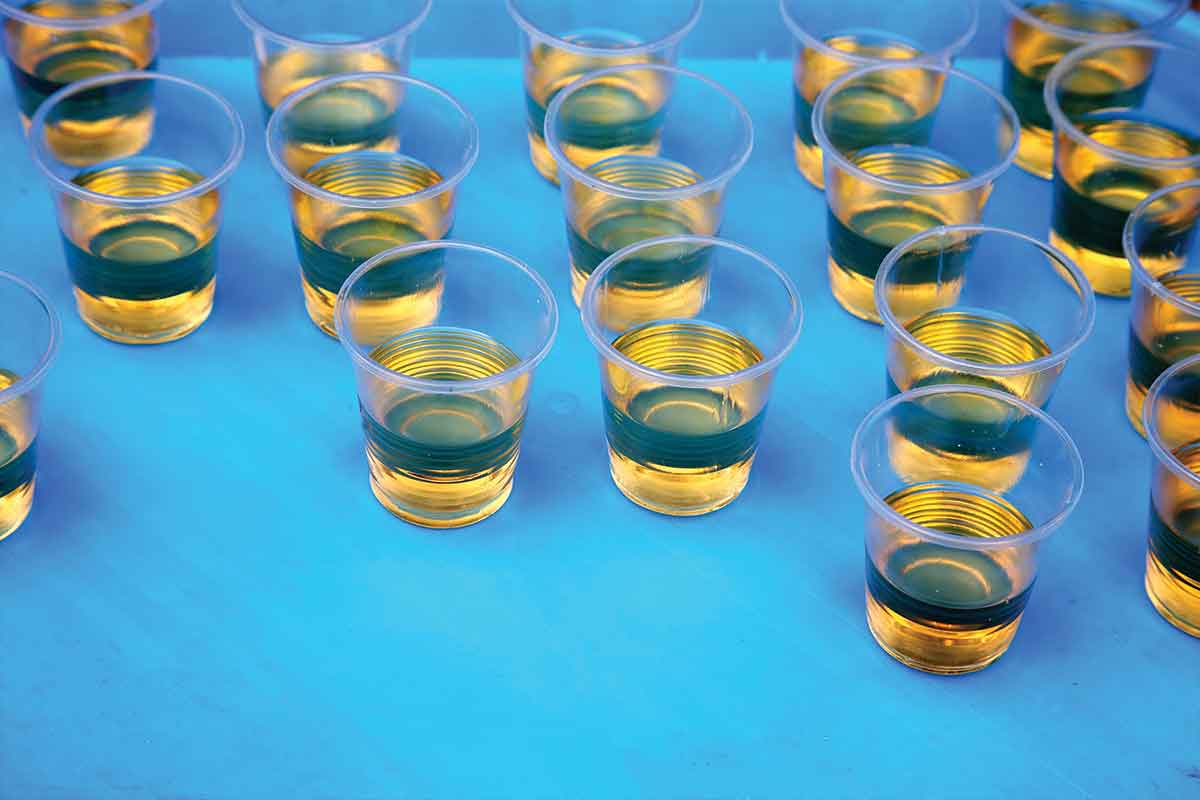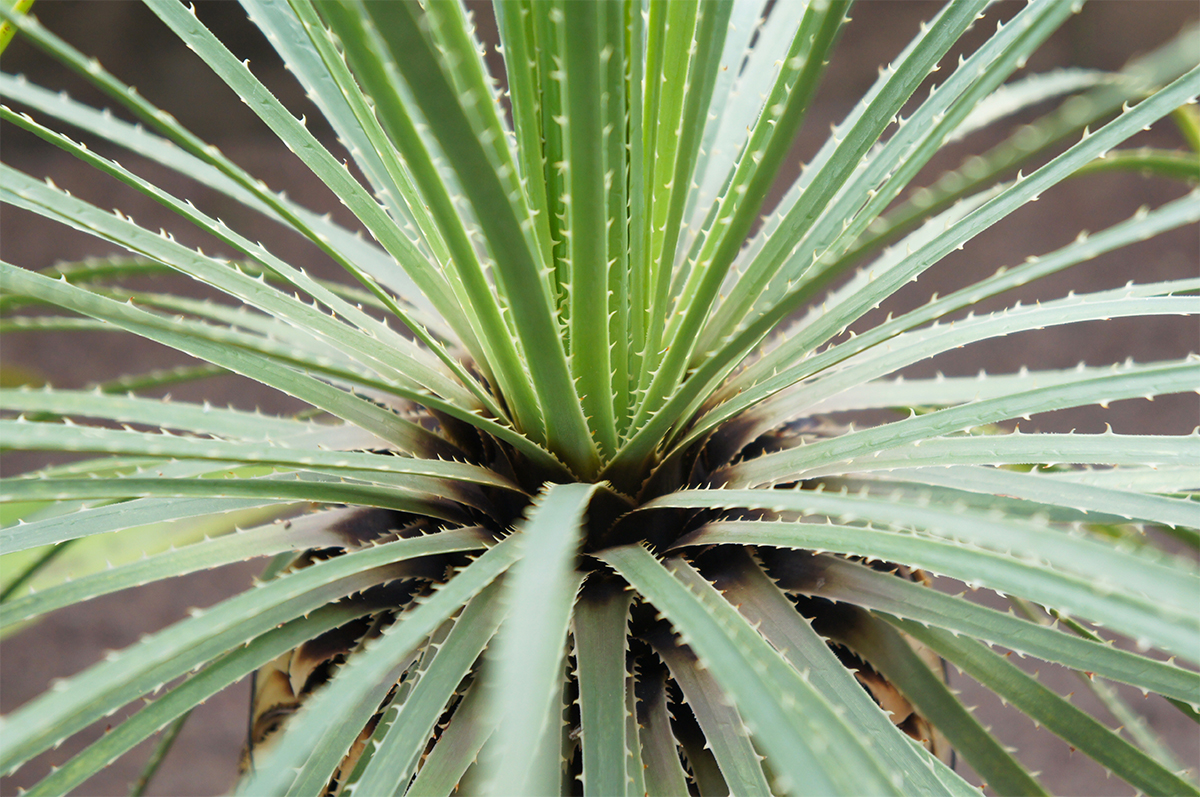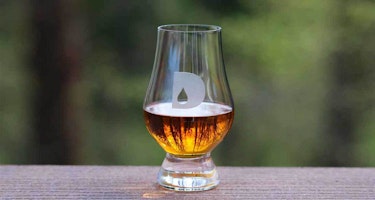The popularity of agave spirits from Mexico is booming here in the United States. As a result, opportunistic distillers have begun producing their own American-made renditions. But tequila and mezcal have geographic indicators which limit production to certain states in Mexico. Agave spirits produced outside of their traditional regions simply don’t use those designations. What’s happening right now is a rare look at a nascent category beginning entirely from scratch: American agave spirits.
Starting a Movement
One man at the forefront of the movement is Craig Reynolds. The former chief of staff for a state senator, Reynolds partners with Californian farmers to grow agave tequilana or blue weber agave. He then cooks the agave himself using the pit roasting method. The project, dubbed Mezcalifornia, uses St. George Spirits to handle distillation.
The team at St. George initially met Reynolds while working on legislation regarding craft distilleries in California. Master distiller Lance Winters made a small batch of agave spirit several years ago, and is now renewing his efforts with Mezcalifornia. During a visit to the distillery last year, a small pour of agave was offered up from an unmarked keg in Winters’ laboratory slash playhouse. The results, as you’d expect with St. George’s track record, were tantalizing.
Southwestern Producers Emerging
Excitingly, Mezcalifornia is only one of a growing number of stateside agave-based projects. While aiming for similar goals, these distilleries differ in their approaches, from using American-grown agave, to imported agave, and even imported agave nectar.
One area you’ll find a concentration of American agave pioneers is Colorado. Peach Street Distillers in Palisade makes the D’Agave line of spirits, including a silver, gold, and extra-aged version. Each one utilizes imported organic blue agave nectar from Jalisco. As for the brand’s decision to source nectar as opposed to whole agave plants, head distiller Davy Lindig says it was the logical choice for their team. “While D’agave is a passion project and we are very proud of our spirit, building an agave processing facility is not our expertise,” he says. “We trust our partner in Mexico to deliver us the absolute highest quality agave nectar, and we take it from there.”

Based in Golden, CO, State-38 Distilling makes a blanco, reposado and añejo rendition of its agave spirit. The distillery’s blue weber agave is certified by the Colorado Department of Agriculture as 100% fair trade and organic.
Fort Collins, CO is home to NOCO Distillery. Its Tokilya agave spirit is made from 100% blue weber agave. A blanco, barreled, and añejo-style are available as well as a 50-50 blend of blue agave and cane spirit. Co-founder Sébastien Gavillet actually cites a request from Colorado State University’s Kendall Reagan nutrition department to produce an agave spirit. He sources the agave from a supplier in Mexico, then ferments and triple-distills on-site.
Challenges for American Agave
The surge in popularity of agave spirits doesn’t come without a cost. The feasibility and sustainability of scaling is one of the chief challenges now presented to aspiring producers. For example, many agave species can take a decade or longer to mature. Also, many producers still harvest wild grown varietals as opposed to growing agave on farms. The blue weber agave used in tequila reduces those problems, with a greatly reduced maturation time and easier cultivation, but it doesn’t eliminate them entirely.
As such, is building an agave-distilling industry in the U.S., with American-grown agave even possible?
“These test batches are being done just to see if agave in California is feasible enough for all parties involved to make the investment,” says Winters.
He cites one farmer, Joe Mueller, who believes it’s an endeavor that can be accomplished in earnest. “My understanding is that he seems to think that with the growth cycle that he’s seeing on his farm in Woodland that he can make it work,” says Winters. “We still have to see what the market is here for something like this.”
Enter Sotol
Distillers looking to bypass the challenge of growing agave may choose to create a sotol-based spirit instead. “It’s quite frankly everywhere,” says Judson Kauffmann, co-founder for Desert Door Texas Sotol. “It’s invasive and every stalk sprees thousands of seeds more than once per year. Animals generally don’t eat it, ranchers don’t like it, and it grows in very high densities with quantities into the tens of billions in Texas.”

While sotol is not technically an agave, it’s certainly agave-adjacent–and most consider it a part of the overall category. Just as there are many types of agave, there are also many specific varieties of sotol—16, in total.
“Sotol can be traced back as the first alcoholic beverage ever consumed in Texas about 800 years ago,” says Kauffmann. “But the plant’s use by early Americans goes back over 10,000 years in what is today Texas and Mexico, and it’s cool to be a part of that history.”
So perhaps Texas sotol is the sustainable solution as we peer into the future. “Our view is that sotol, as a spirit category, is totally sustainable,” says Kauffmann. “To support sustainability and out of respect for nature, we return our organic waste to the ranches where we harvest and we also leave the root systems in the ground to give the plant a decent shot at a rapid recovery.”
In other words, you can safely bet on more American sotol in your future.
Ready to dive into American agave spirits?
With Distiller, you’ll always know what’s in the bottle before you spend a cent. Rate, Review and Discover spirits! Head on over to Distiller, or download the app for iOS and Android today!

